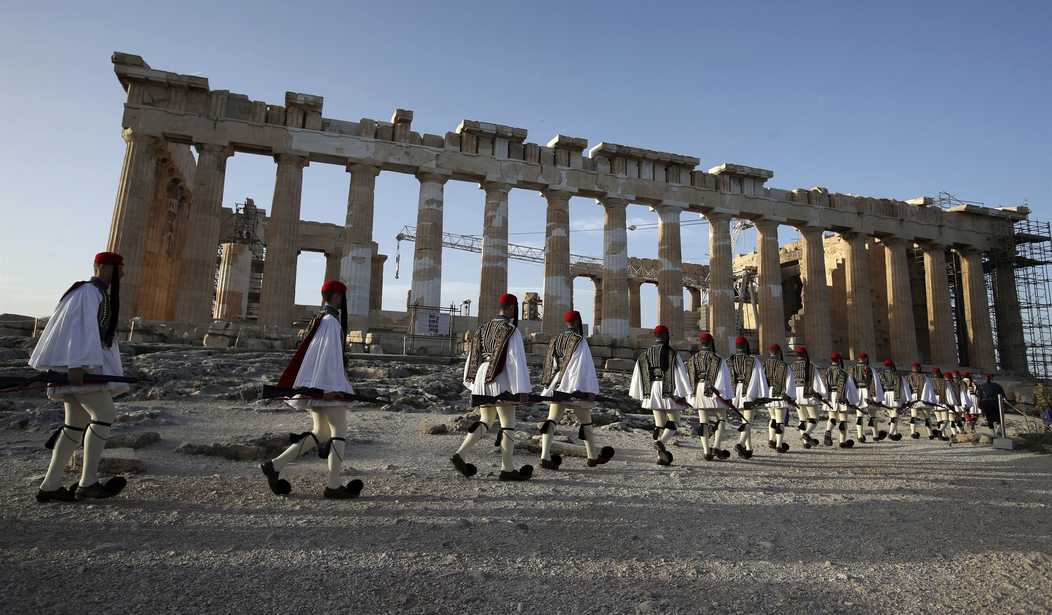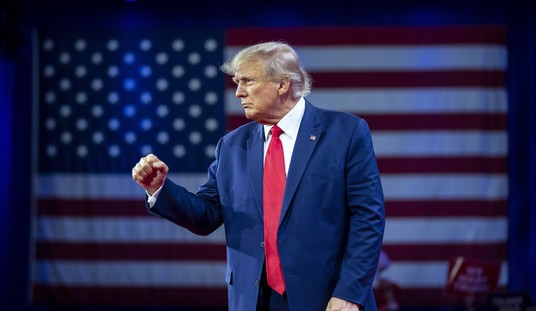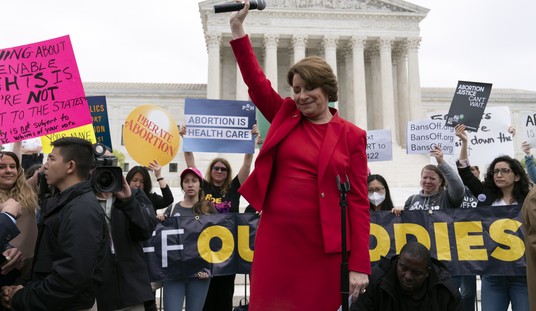I bash the elites all the time and truly believe they deserve far more disdain than I or anyone else can give them.
But I don't think for a moment that any society more complex than a small village can actually successfully function without an elite of some kind or another, and by that I mean people whom others look to as legitimate leaders.
Sure, plenty of societies have bad elites, and as a consequence, they function badly. But prosperous, thriving societies need elites who devote a significant amount of their effort to promoting the good of society, even if they skim more than a little bit off the top for themselves.
As we have entered a populist moment in the West—one that is necessary to correct the moral collapse of our elites—it behooves us to remind ourselves why all societies have elites and why successful ones need reasonably good elites.
As with everything economic and political, the issue centers on the importance of the division of labor. Every step up the ladder from our origin as hunter/gatherers has required an ever more sophisticated division of labor, and societal health and prosperity are directly tied to how well allocated both human and material resources are.
At the bottom rung of societal development the most pressing need was security, and the division was between the strongest and most aggressive and everybody else. These societies were brutal, but a well-defended tribe that can cow or defeat its opponents can survive and prosper.
On the other hand, modern states have a dizzyingly complex division of labor, and we can imagine almost no task that doesn't include enormous levels of specialization. From construction to Hollywood, the more specializations there are, the more efficient the process is, and the better the results are. And, for good or ill, the elites are the people who have the least replaceable skills, the most broad impact on the lives of others, and whose competence effects the most people.
It would be insane to believe the elites as a class would be morally superior or less selfish than others, but in well-functioning societies, their own interests should overlap with the good of society as a whole. The primary reward for elites, aside from a substantially above-average quality of life, is power and prestige, which many people prize far more than money.
So, what function does an elite serve in modern societies, and what happens when we lose our trust in them?
Leave aside politicians, for a moment because they are most likely to be motivated by power and money and least likely to toss aside self-interest. Bad politicians are as old as time and will be with us forever.
The elites whose declines matter most are the academic, cultural, and scientific elites. It is the Harvards, the CDCs, the teachers, and all the people we must trust to keep our society functioning well. A good elite creates and inspires social trust, and social trust is the grease that keeps the wheels spinning.
You may have noticed that all the elites I mentioned are in the knowledge production and distribution business. Because of the division of labor, as a practical matter, almost everything we think and do is based on the implicit trust of the people around us. Politicians can be more corrupt because we already know they are likely to be self-interested. But our doctors, our teachers, our cancer researchers, our public health officials, and our news media need to be trustworthy or eventually, all the trust that is necessary for us to function in the modern world evaporates.
The pandemic response is a perfect example of what goes wrong when our elite fails us. Even those of us who spent countless hours going through the research on COVID, viral spread, what works and what doesn't still need to have trustworthy information, and that's why we have a CDC and spend countless billions a year on medical research. The bargain we made with the scientists and policymakers at the CDC is that we would give them access to enormous quantities of money in exchange for unbiased research and the best advice possible.
How'd that work out? The failures of our elites have cost us incalculably. Yet imagine if the CDC had been what it was supposed to be, and perhaps in the past, it had been. Reasonably objective, scientific, open to debate, honest with the public, and willing to concede the gray areas where the evidence was equivocal.
Our country would be less divided, trust in medicine would be higher, there would be less hesitancy about necessary vaccines, and we would be better prepared for whatever comes next.
This same pattern has played out regarding universities, public schools, the news media...pretty much every institution that has the potential to add enormously to social success. They all failed us, and the consequences have been devastating. Not only because of the mistakes they made but also because they revealed themselves to be quacks.
That is why we are in a populist moment and why it is necessary that we go through one despite the downsides. We need to get rid of these particular elites, but it would be a mistake to believe that we can do without their replacements.
We need trustworthy news media, scientific research, a CDC, and a military. Even the entertainment industry matters quite a bit.
We just can't afford to have such corrupt ones. These particular institutions must be rejected.
Populist movements arise when trust in the elites craters, and without question, that cratering is due to the failures and self-dealing of the elites. But populism is not a durable basis for building a successful and prosperous society, because we need a division of labor that includes a class of trustworthy people who do the knowledge work and who make necessary policies.
Treating cancer is not a commonsensical enterprise, and neither is medical research. Determining the costs and benefits of various actions can often require sophisticated reasoning that leads to counterintuitive results.
This is why pure democracies tend to fail quickly. Our Founding Fathers sought ways of constraining elites and ensuring that their interests usually coincided with the general interest, but they knew elites were a necessary component of a well-functioning society.
Generally speaking, I fear populism because it is too responsive to people's fickle fashions and passions.
Unfortunately, there really is no alternative. Our elites are corrupt and despise us, so they have to go. It will take generations to replace them I am afraid, if we can at all.








Join the conversation as a VIP Member